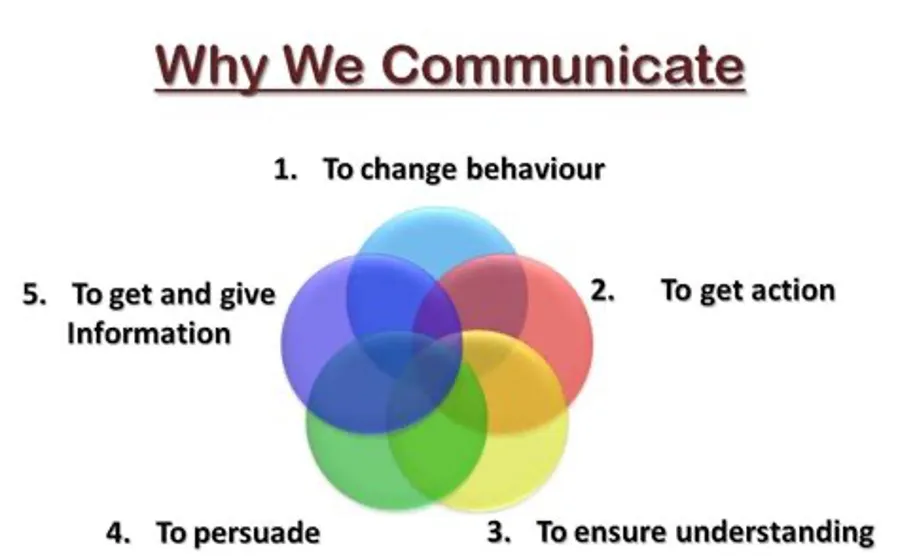
Rocks are people that tend not to communicate.
Megaphones are people that over-communicate.
In the middle we find all the possible nuances, of people communicating more or less, people communicating in a wrong way and people that communicating the wrong things.
Recently in the wheelchair basketball team I coach, some trouble waters happened with the President determined to resign and another player that communicated to another that communicated to the whole team that she was not coming to play anymore.
I am the coach and also a member of the Board of Directors of the Association and I had to say “WHAAAAAAAAT!?!” twice. The first one because as a member of the Board I was reading that the President was resigning. The second because I heard from alternative sources that one of the players was not coming to train anymore without knowing the reasons.
Le pietre sono persone che tendono a non comunicare.
I megafoni sono persone che comunicano troppo.
Nel mezzo troviamo tutte le possibili sfumature, di persone che comunicano più o meno, di persone che comunicano in modo sbagliato e di persone che comunicano cose sbagliate.
Recentemente, nella squadra di basket in carrozzina che alleno, si sono verificati dei problemi con il presidente deciso a dimettersi e un'altra giocatrice che ha comunicato a un'altra che ha comunicato a tutta la squadra che non sarebbe più venuta a giocare.
Io sono l'allenatore e anche un membro del Consiglio Direttivo dell'Associazione e ho dovuto dire "COOOOSAAAA!?!" due volte. La prima perché come membro del Consiglio Direttivo stavo leggendo che il Presidente si stava dimettendo. La seconda perché ho saputo da fonti alternative che uno dei giocatori non veniva più ad allenarsi senza conoscerne i motivi.

If this happened to me years ago, the reaction would have been 100% coming from my Ego. But in this case, at first I thought: “why these people cannot simply talk about their problems? Where do they feel a conflict for which they are not able to express their emotions? How can I help them and evaluate how to make our team proceed in a nice and compact way?”
Communicating sentiments and emotions is one of the most difficult thing. And you know why? Most of us grow up with parents or grandparents that directly or indirectly experienced war. There was no space for emotions back then since for the most part, they were scary and negative.
Other families that were not directly influenced by war, they could anyway face a low level of awareness, mainly brought by the people parents and grandparents were used to relate to so talking about emotions could be seen as a weakness signal. And in that kind of society, these free weakness manifestations were not allowed.
Se mi fosse successo anni fa, la reazione sarebbe stata al 100% del mio Ego. Ma in questo caso, all'inizio ho pensato: "Perché queste persone non possono semplicemente parlare dei loro problemi? Dove sentono un conflitto per il quale non sono in grado di esprimere le loro emozioni? Come posso aiutarli e valutare come far procedere il nostro team in modo piacevole e compatto?".
Comunicare sentimenti ed emozioni è una delle cose più difficili. E sapete perché? La maggior parte di noi è cresciuta con genitori o nonni che hanno vissuto direttamente o indirettamente la guerra. All'epoca non c'era spazio per le emozioni, perché per la maggior parte erano spaventose e negative.
Altre famiglie che non sono state direttamente influenzate dalla guerra, potevano comunque trovarsi di fronte a un basso livello di consapevolezza, portato soprattutto dalle persone con cui genitori e nonni erano abituati a relazionarsi, per cui parlare di emozioni poteva essere visto come un segnale di debolezza. E in quel tipo di società, queste libere manifestazioni di debolezza non erano ammesse.

Whom are we supposed to speak about our emotions?
Usually the mom is the natural source for kids to speak about emotions. Women in general are more sensible than men and even more sensitive, thanks to their maternal innate behavior.
Sometimes women are inhibited by men, often husbands, so they cannot expand their consciousness towards the energy related to the feminine nature like inspiration, brightness, life, dynamism, evolution, change and so on.
When in a group, when leading a group, when evaluating to join a group, communicating is of a vital importance because if you do not communicate, others won’t be able to get your point of view and they may potentially miss an opportunity to grow.
On the other hand, when you share your opinion, try always to share it as not an attack to others but as a personal opinion, said with enough humbleness and enough compassion to others that will be listening it. Every personal opinion is personal and may not be shared, but when it’s said for a greater good, for the good of the organization you are into, I think that it’s always worth to be shared.
How do you think we can help these people manifesting correctly their emotions?
A chi dovremmo parlare delle nostre emozioni?
Di solito la mamma è la fonte naturale per i bambini per parlare di emozioni. Le donne in generale sono più sensibili degli uomini e anche più sensibili, grazie al loro comportamento materno innato.
A volte le donne sono inibite dagli uomini, spesso dai mariti, per cui non possono espandere la loro coscienza verso le energie legate alla natura femminile, come l'ispirazione, la luminosità, la vita, il dinamismo, l'evoluzione, il cambiamento e così via.
Quando si è in un gruppo, quando si guida un gruppo, quando si valuta di entrare in un gruppo, comunicare è di vitale importanza perché se non si comunica, gli altri non saranno in grado di cogliere il proprio punto di vista e potrebbero perdere un'opportunità di crescita.
D'altra parte, quando condividete la vostra opinione, cercate sempre di condividerla non come un attacco agli altri ma come un'opinione personale, detta con sufficiente umiltà e sufficiente compassione per gli altri che la ascolteranno. Ogni opinione personale è personale e può non essere condivisa, ma quando è detta per un bene più grande, per il bene dell'organizzazione in cui si è coinvolti, credo che valga sempre la pena di essere condivisa.
In che modo pensi queste persone si possano aiutare a manifestare correttamente il loro stato d'animo?
